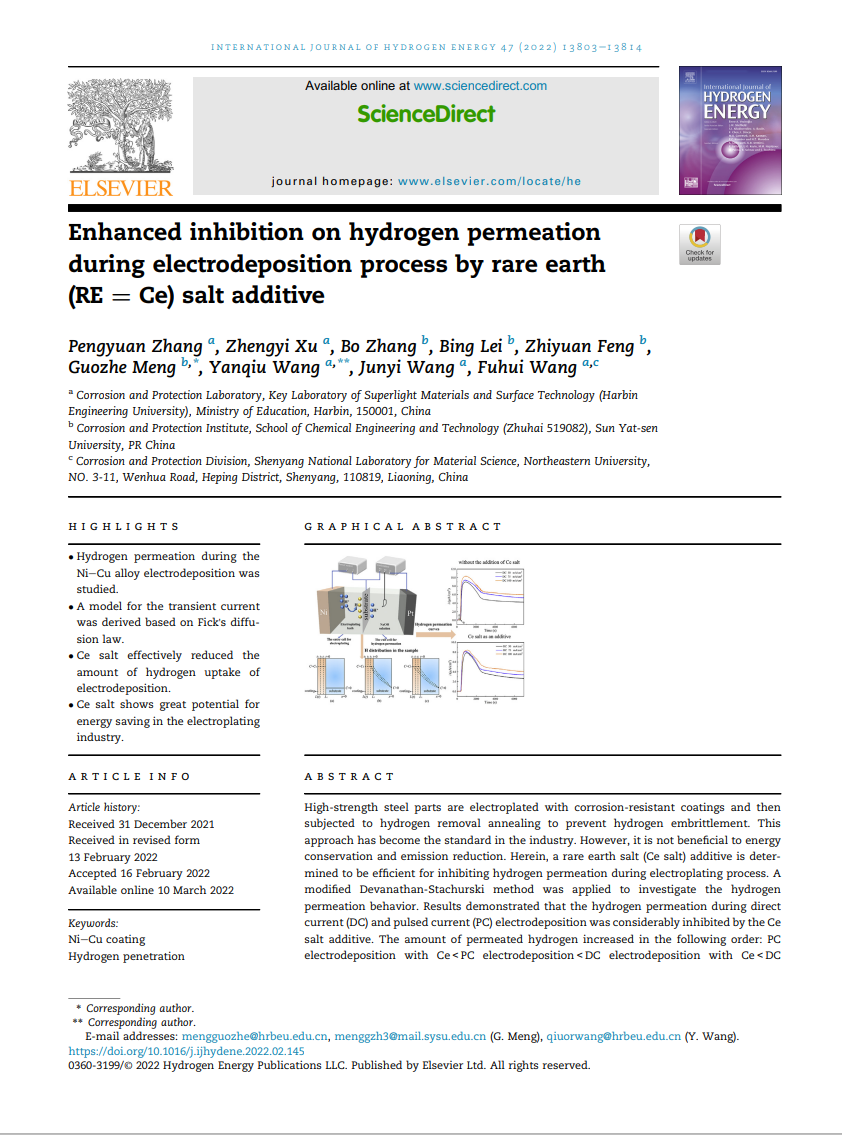High-strength steel parts are electroplated with corrosion-resistant coatings and then subjected to hydrogen removal annealing to prevent hydrogen embrittlement. This approach has become the standard in the industry. However, it is not beneficial to energy conservation and emission reduction. Herein, a rare earth salt (Ce salt) additive is determined to be efficient for inhibiting hydrogen permeation during electroplating process. A modified Devanathan-Stachurski method was applied to investigate the hydrogen permeation behavior. Results demonstrated that the hydrogen permeation during direct current (DC) and pulsed current (PC) electrodeposition was considerably inhibited by the Ce salt additive. The amount of permeated hydrogen increased in the following order: PC electrodeposition with Ce<PC electrodeposition<DC electrodeposition with Ce<DCelectrodeposition. Therefore, the environmentally friendly additive has great potential for energy saving and emission reduction in the electrodeposition or pickling industry.
